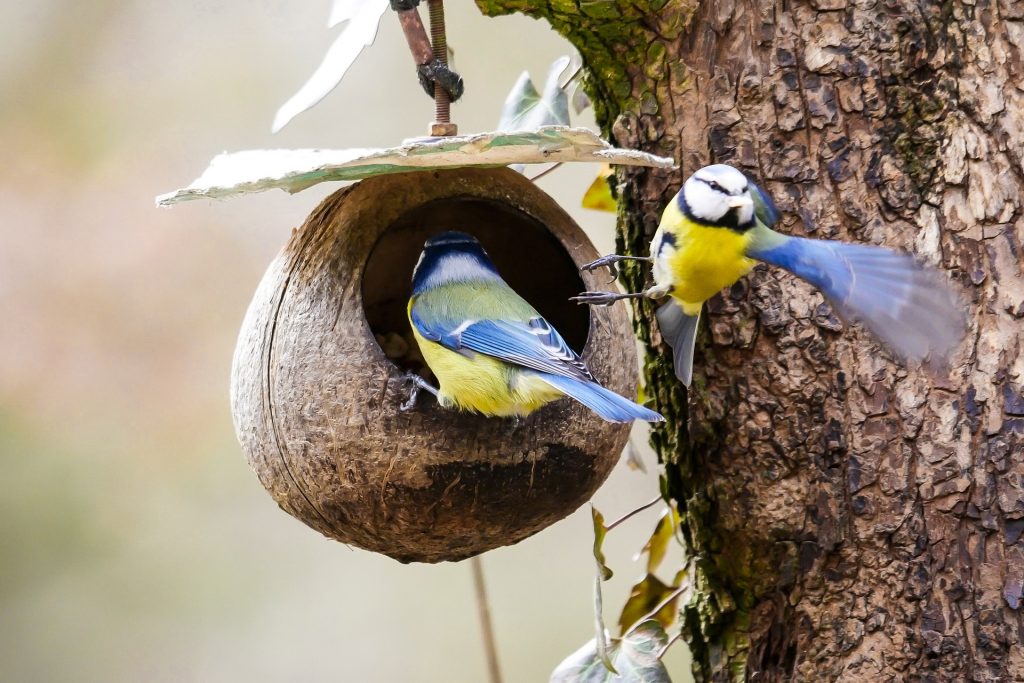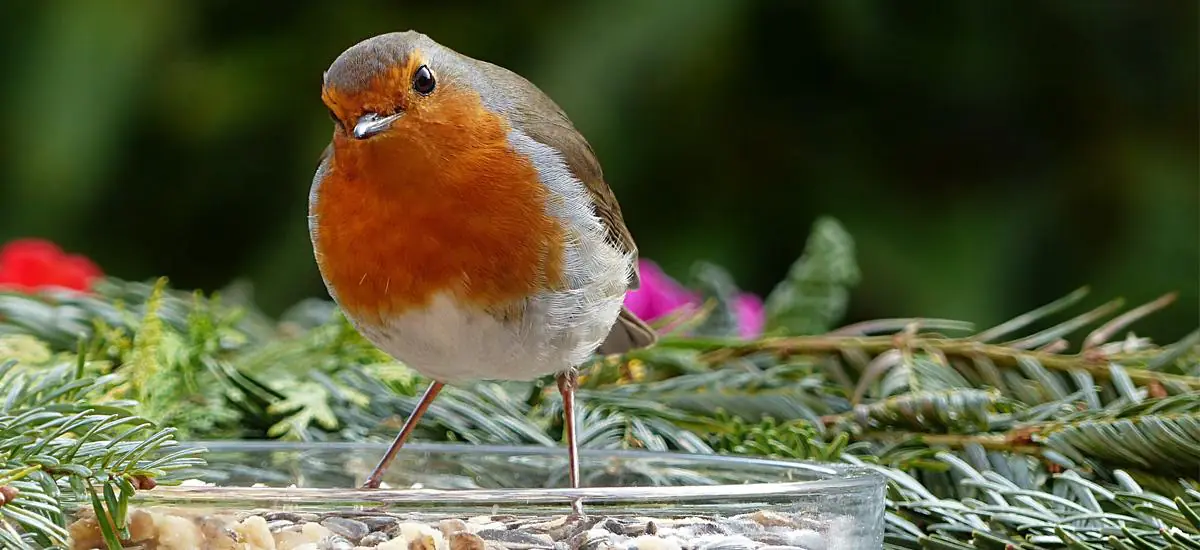How To Keep Birds Fed This Winter
After an unusually warm, long summer and sunny start to Autumn, we can finally say welcome along to cold, crisp mornings and walks with crunchy leaves underfoot.
Whenever Halloween approaches at Ivel Valley we start to think about what we can do in our gardens to ensure our neighbourhood birds are well looked after and more importantly well fed.
Of course, we are lucky as we have first-hand knowledge and experience about what we should be putting out in our bird feeders.
Over the years we have learned exactly what to feed our feathery friends to ensure they get the most nutrition out of the food we feed them.
Like humans, nourishment is so important through the winter. For birds, their natural sources of food can be scarce, so nutrition for birds throughout the cold months is very important.
Winter Feast for the Eyes
There are thought to be over half a million birds in our gardens from October - March.
Winter is the perfect time of year to get close up views of birds visiting your garden for food, water or shelter. From Robins, Chaffinches to the beautiful and small Bramblings.
It also provides an exciting opportunity to see some species which are only here during the winter months.
Following the breeding season and autumn migration, the community of birds in your garden may be different to what it has been over the summer months.
Your winter garden will include migrant birds from Scandinavia, Russia and continental Europe.
Smaller birds typically suffer more throughout the winter months. In freezing temperatures small-bodied birds have to almost eat continuously just to stay alive.
Smaller birds are usually found in fields, farmland trees and hedgerows, these countryside birds will visit gardens when food is scarce. Freezing temperatures mean berries, seeds, insects, and worms are all hard to access under the snow and frost.
Create a Winter Feast
We often get asked what the best kind of food is to place out for winter birds, so we are going to share our top foods for you to keep your garden birds 'well fed' when the weather turns.
"Different courses for different horses"
No more is that saying truer than when it comes to bird food. You have the unique option of being able to choose which birds you would like to attract to your garden.
Some birds prefer a varied seed mix whilst others want to indulge in some juicy peanuts.
Fear not, we are here to guide you through your winter bird food needs!

Seed Mixes
A good quality seed mix will include plenty of flaked maize, sunflower seeds, and peanut granules. You can expect to attract a range of birds with a seed mix, you could say it is a buffet for birds.
Avoid mixes with split peas, beans dried rice or lentils as they can be very dry and hard for smaller birds to digest
Nuts & Seeds
Black sunflower seeds, Nyger seeds, and Peanut granules are all a great start for winter food. Nuts and Seeds have a higher fat and oil content making them energy dense and easy to digest. Peanut granules are even easier for birds to feast on. You can expect to attract Goldfinches, Robins and even woodpeckers.
Avoid buying peanuts from anyone else but a reputable bird food company, peanuts can contain a natural toxin which can kill birds. Never use dry roasted or salted nuts.
Bird Fat Balls
Fat based food balls are an excellent food for your winter garden. These treats are a perfect mix of fat, protein, and energy. They are easy to digest and you will attract a huge range of different birds; typically smaller birds find them easier to feast on so placing them out with a seed mix for the bigger birds is a good idea.
Avoid putting out the balls in their mesh or nylon bags, always remove the bag as the soft mesh can trap and injure birds.
Insect food
To a Robin, mealworms are like finding gold at the end of the rainbow. Mealworms are will attract Robins, Blue Tits, and even a pied wagtail. They are natural food and can be used to feed birds throughout the year. Some people like to breed their own and keep them live. However, dried mealworms are just as nutritious for birds and are an ideal winter feeding food.
Avoid live mealworms if they are not fresh. Any dead mealworms must not be used as they can cause salmonella poisoning.
Household Food
Why not give your birds a choice and put your food scraps to good use. Cooked brown rice, uncooked oats, and most breakfast cereals will be devoured by winter birds. Leftover cooked vegetables and even bacon rind will be heartily enjoyed.
Avoid putting out mouldy or stale food as the bacteria is not easily digested by birds and can cause salmonella and other nasty diseases.
Feast not Famine
As you can see winter bird feeding can not only attract a host of new birds to your garden, you will also be helping keep our bird population healthy.
When the harsh winter months come; why not throw a few seeds or when you are stirring your oats in the morning, why not think to throw a handful out for the birds.

